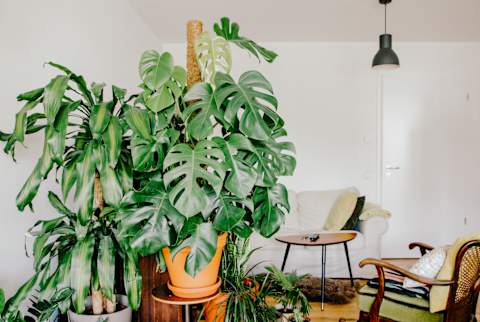
Our editors have independently chosen the products listed on this page. If you purchase something mentioned in this article, we may earn a small commission.
September 16, 2021 — 13:06 PM
The health space is chock-full of information that’s constantly evolving—but when it comes to the very fundamentals of well-being, it’s the simple techniques that truly last. Longevity expert Sergey Young, author of The Science and Technology of Growing Young, would agree: Living a healthy, long life, he discusses during the mindbodygreen podcast, doesn’t have to be too complicated. (In fact, he swears by just five “longevity buckets” to live to 200, and they’re all relatively straightforward.)
He even spoke with physician Jack Kreindler, M.D., founder of the U.K.-based Center for Health and Human Performance, about his No. 1 piece of advice for longevity—and the tip is incredibly accessible: “Every evening, we visit the most amazing longevity clinic in the world. We go to bed, and we sleep.” No waitlists, no special routines—just you, your bed, and some solid snoozing. Sounds sublime, don’t you think?
Why sleep is so great for longevity.
OK, it’s more of a cheeky response than an actual “clinic,” but the logic totally stands. See, when you sleep, your body shifts into “rest mode,” with a focus on repair and restoration for practically every cell in your body—that’s why proper shut-eye is essential to brain function, immunity, muscle repair, metabolic health, and much, much more. It’s even clinically shown to support a longer lifespan, which is why Young files sleep into one of his aforementioned “longevity buckets.”
In terms of how much sleep carries you over the threshold, it’s not so cut and dried—everyone has a different ideal sleep schedule, after all. “My rule is eight hours in the bed, seven hours of sleep,” Young offers. Still, he suggests prioritizing deep, quality sleep over quantity (because it’s not just about clocking hours). “When people ask me what they can change in the next two weeks, I’m always advising them to run on vegetables and give your body and mind enough sleep,” Young adds. “The transformation that you can do in two or three weeks is really amazing.”
How to get more quality sleep.
Given the association between sleep and longevity, you might be wondering how to enhance your sleep hygiene. Things like avoiding late-night screen time, keeping the bedroom cool, and keeping a consistent sleep schedule can all set you up for a successful snooze—for all of our expert-backed sleep tips, feel free to browse our in-depth guides here and here.
You can also lean on sleep supplements to help get the ball rolling—just make sure you find one with active ingredients that are backed by sleep-relevant science and dosed properly.* (If you’re not sure where to start, check out our list of 18 all-stars.)
sleep support+
The deep and restorative sleep you’ve always dreamt about*

In terms of ingredients, we’re partial to magnesium, which clinical research shows can help people fall asleep faster and stay asleep longer; jujube seed extract, a fruit used for centuries in traditional Chinese medicine for relaxation and sedation; as well as PharmaGABA®, a supplement bioactive of the naturally occurring neurotransmitter GABA, which has been shown to enhance natural sleep quality.* As you could probably guess, we included all three in our one-of-a-kind sleep support+ formula, working with leading researchers and physicians to perfect the powerful blend of these targeted ingredients.*
Says Young, the best “clinic” in the world is actually your own bedroom—supporting quality sleep is one of the smartest things you can do for longevity.*
If you are pregnant, breastfeeding, or taking medications, consult with your doctor before starting a supplement routine. It is always optimal to consult with a health care provider when considering what supplements are right for you.

sleep support+
The deep and restorative sleep you’ve always dreamt about*
sleep support+
The deep and restorative sleep you’ve always dreamt about*









